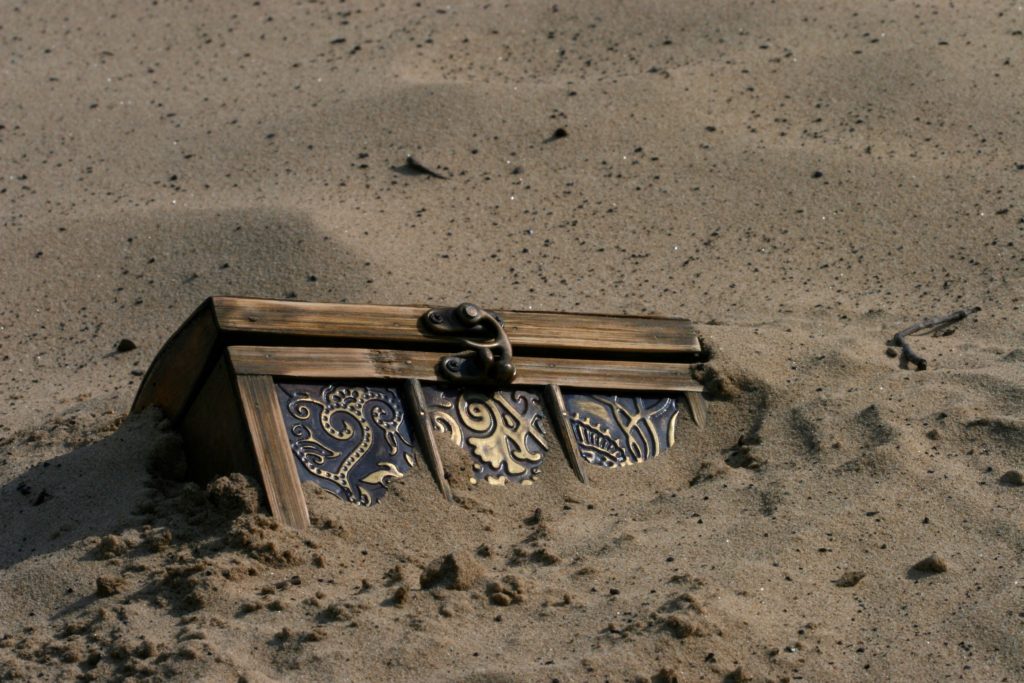“Then Joshua said to Achan, “My son, give glory to the Lord, the God of Israel, and honor Him. Tell me what you have done: do not hide it from me.”
(Joshua 7:19 NIV)

Achan had stolen from the Lord and he’d gone to great lengths to cover it up. Meanwhile, his fellow Israelites suffered the consequences of his choices: unable to stand in battle because of the sin among them. God called the Israelites to consecration in verse thirteen, even stating the obvious; “There are devoted things among you.” Yet no one comes forward. Achan waited out the tribe by tribe, clan by clan, family by family inspection, no doubt hoping to be overlooked. But finally, he was caught in the Holy Spirit crosshairs, and it’s only then that he spilled his story.
Achan reminds us of an uncomfortable but reliable truth. Confession is always better than discovery. Any time we can gather the guts to volunteer to our wrongdoing, rather than having it dragged out of us, it’s better received. Think back to your childhood: Mom and Dad were relieved and far more gracious when you came to them with your wrongdoing rather than digging in heels and lying until hard evidence was introduced. Consider now, your spouse: confession of weakness is relationship-building, where cover-up is maritally destructive. The same is true in our story with God, confession is met with grace, but concealment yields strong consequence.
“Achan replied, “It’s true! I have sinned against the Lord, the God of Israel. This is what I have done: when I saw in the plunder a beautiful robe from Babylonia, two hundred shekels of silver and gold bar weighting fifty shekels, I covered them and took them. They are hidden in the ground inside my tent with the silver underneath.” (Joshua 7:20-21 NIV)
We read Achan’s statement and it feels almost like confession, but we can’t forget, he’s silently stood through the interrogation of his entire nation. He didn’t come forward, he was found out. Under intense scrutiny, Achan confessed, even gave an exact accounting of his loot, but his detailed report is unaccompanied by an apology. The leadership excavated the evidence of his crime and Joshua had one last question for Achan. “Why have you brought trouble on us?” Achan was silent and it seems he remained unrepentant all the way through his stoning.
Confession is always better than discovery, especially when it is expressed with contrition. I have wondered how different Achan’s narrative might read if he had confessed at the first announcement of the assembly of tribes, or if he had volunteered his sin with a sincere apology? We can’t know for sure from his history, but we are still writing our own.
Don’t wait for the Lord to spotlight your transgressions. Search your hear own heart routinely. Employ the powerful aid of the Holy Spirit. Apologize often and quickly, emphatically and thoroughly. Keep short accounts and volunteer information. Receive God’s grace and live to tell the story.
“Whoever conceals their sin does not prosper, but the one who confesses and renounces finds mercy.” (Proverbs 28:13 NIV)
Lord, we know we are sinful by nature. Give us the courage to confront that flesh tendency, to identify and confess our sin quickly, rather than reach for covering. Let us learn from Achan’s ambivalence; confession is far better than discovery. Holy Spirit, help us as we search out the missteps in our own story. Make us rapid to repent and ready to rebuild relationship. Amen.